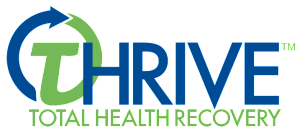There’s a definite link between trauma, alcoholism, and drug abuse.

Trauma can be induced by any number of events, such as:
- Emotional and/or physical childhood abuse,
- Sexual assault or abuse,
- Natural disaster,
- Accident,
- Crime and
- Grief
Additionally, a person doesn’t necessarily have to be the direct victim of such events, as witnessing bad things happening to others can prove equally traumatic.
A somewhat vague term, “trauma” lends itself to a broad range of definitions. The Substance Abuse and Mental Health Services Administration (SAMHSA) defines trauma as:
an event, series of events, or set of circumstances experienced by an individual as physically or emotionally harmful or life-threatening with long-lasting adverse effects on the individual’s functioning and mental, physical, social, emotional, or spiritual well-being.
That is a mouthful, but the key to the definition is its focus on the individual and how trauma represents a differential subjective experience for that person. While one person surviving a bad car accident or natural disaster might end up traumatized, another survivor of the same accident or disaster may not experience the same. Likewise, a person traumatized by the loss of a loved one, might be able to shake off the potential trauma caused by a mugging.
The Prevalence of Trauma in Addiction
Just how prevalent is trauma in relation to those struggling with alcoholism and/or drug addiction? Well, just consider these findings from assorted studies conducted on trauma’s relation to addiction:
More than two-thirds of people seeking substance abuse treatment report one or more traumatic lifetime events.
- Each incidence of childhood trauma (termed “adverse childhood experience”) increased the risk of early initiation into illegal drug use by a factor of between two to four-fold.
- Subjects reporting five or more adverse childhood experiences are seven to ten times more likely to become chronic abusers of alcohol and/or illegal drugs.
- More than 60 percent of IV drug users report experiencing abusive and/or traumatic childhood events.
- The compulsive use of nicotine, alcohol, and street drugs increases proportionally in a manner that closely parallels the intensity of trauma experienced in childhood.
- Substance-abusing individuals experience physical assault and/or witness serious injury or death of others at rates two to three times higher than the general population.
While the various research does not link all addiction to trauma, it’s clear that trauma plays a role with many people suffering with addiction. This statement makes sense because no one wants to experience the pain, stress, anxiety, confusion, insomnia, and other negative effects potentially caused by trauma. In an effort to mask these feelings, many turn to alcohol and drugs to cope. Self-medicating may help someone manage their trauma in the short run, but it opens them up for addiction and its many complications over the longer run.
In treating someone’s addiction, it is always important to determine the extent any trauma may have played in encouraging their usage of alcohol and/or drugs, and treat the trauma along with the addiction accordingly. Because of the prevalence of trauma with addiction, Gulf Breeze Recovery incorporates a segment in their program, called traumatrac, which is devoted to those suffering with PTSD and trauma.
About Gulf Breeze Recovery:
Gulf Breeze Recovery, unlike other treatment centers in Florida, is a non 12 step holistic drug and alcohol rehab that is changing the future of addiction treatment with their THRIVE® (Total Health Recovery) program focused on overcoming chronic relapse.
Gulf Breeze Recovery’s THRIVE® program is a non 12-step approach designed for those who are looking for a drug and alcohol treatment program to produce a different and positive result.
This non-12 step program allows you to drive beyond your addictions and promotes a new outlook on life.
We are licensed by the Florida Department of Children and Families, and our last audit scored 99.7! Also, we are gold certified by the Joint Commission.
Want to read more about Gulf Breeze Recovery’s non 12 step, holistic drug and alcohol rehab? Check out some of our latest posts:
Researchers Identify Role of Key Brain Signaling Protein in Alcohol Use Disorder
January 29, 2021
College Students Who Returned Home Due to Pandemic Drinking Less
January 29, 2021
Overdose Deaths Soar in the Midst of a Pandemic
January 27, 2021
Alcoholism Today in Seniors and Younger Generations
January 20, 2021
End Chronic Relapse and Start a New Life!
At Gulf Breeze Recovery we don’t want you to have just a great recovery, we want you to have a great life!
Contact Us, or Call: 833.551.2356
There’s a definite link between trauma, alcoholism, and drug abuse.

Trauma can be induced by any number of events, such as:
- Emotional and/or physical childhood abuse,
- Sexual assault or abuse,
- Natural disaster,
- Accident,
- Crime and
- Grief
Additionally, a person doesn’t necessarily have to be the direct victim of such events, as witnessing bad things happening to others can prove equally traumatic.
A somewhat vague term, “trauma” lends itself to a broad range of definitions. The Substance Abuse and Mental Health Services Administration (SAMHSA) defines trauma as:
an event, series of events, or set of circumstances experienced by an individual as physically or emotionally harmful or life-threatening with long-lasting adverse effects on the individual’s functioning and mental, physical, social, emotional, or spiritual well-being.
That is a mouthful, but the key to the definition is its focus on the individual and how trauma represents a differential subjective experience for that person. While one person surviving a bad car accident or natural disaster might end up traumatized, another survivor of the same accident or disaster may not experience the same. Likewise, a person traumatized by the loss of a loved one, might be able to shake off the potential trauma caused by a mugging.
The Prevalence of Trauma in Addiction
Just how prevalent is trauma in relation to those struggling with alcoholism and/or drug addiction? Well, just consider these findings from assorted studies conducted on trauma’s relation to addiction:
More than two-thirds of people seeking substance abuse treatment report one or more traumatic lifetime events.
- Each incidence of childhood trauma (termed “adverse childhood experience”) increased the risk of early initiation into illegal drug use by a factor of between two to four-fold.
- Subjects reporting five or more adverse childhood experiences are seven to ten times more likely to become chronic abusers of alcohol and/or illegal drugs.
- More than 60 percent of IV drug users report experiencing abusive and/or traumatic childhood events.
- The compulsive use of nicotine, alcohol, and street drugs increases proportionally in a manner that closely parallels the intensity of trauma experienced in childhood.
- Substance-abusing individuals experience physical assault and/or witness serious injury or death of others at rates two to three times higher than the general population.
While the various research does not link all addiction to trauma, it’s clear that trauma plays a role with many people suffering with addiction. This statement makes sense because no one wants to experience the pain, stress, anxiety, confusion, insomnia, and other negative effects potentially caused by trauma. In an effort to mask these feelings, many turn to alcohol and drugs to cope. Self-medicating may help someone manage their trauma in the short run, but it opens them up for addiction and its many complications over the longer run.
In treating someone’s addiction, it is always important to determine the extent any trauma may have played in encouraging their usage of alcohol and/or drugs, and treat the trauma along with the addiction accordingly. Because of the prevalence of trauma with addiction, Gulf Breeze Recovery incorporates a segment in their program, called traumatrac, which is devoted to those suffering with PTSD and trauma.
About Gulf Breeze Recovery:
Gulf Breeze Recovery, unlike other treatment centers in Florida, is a non 12 step holistic drug and alcohol rehab that is changing the future of addiction treatment with their THRIVE® (Total Health Recovery) program focused on overcoming chronic relapse.
Gulf Breeze Recovery’s THRIVE® program is a non 12-step approach designed for those who are looking for a drug and alcohol treatment program to produce a different and positive result.
This non-12 step program allows you to drive beyond your addictions and promotes a new outlook on life.
We are licensed by the Florida Department of Children and Families, and our last audit scored 99.7! Also, we are gold certified by the Joint Commission.
Want to read more about Gulf Breeze Recovery’s non 12 step, holistic drug and alcohol rehab? Check out some of our latest posts:
Researchers Identify Role of Key Brain Signaling Protein in Alcohol Use Disorder
January 29, 2021
College Students Who Returned Home Due to Pandemic Drinking Less
January 29, 2021
Overdose Deaths Soar in the Midst of a Pandemic
January 27, 2021
Alcoholism Today in Seniors and Younger Generations
January 20, 2021
End Chronic Relapse and Start a New Life!
At Gulf Breeze Recovery we don’t want you to have just a great recovery, we want you to have a great life!


 More than two-thirds of people seeking substance abuse treatment report one or more traumatic lifetime events.
More than two-thirds of people seeking substance abuse treatment report one or more traumatic lifetime events.

 More than two-thirds of people seeking substance abuse treatment report one or more traumatic lifetime events.
More than two-thirds of people seeking substance abuse treatment report one or more traumatic lifetime events.




